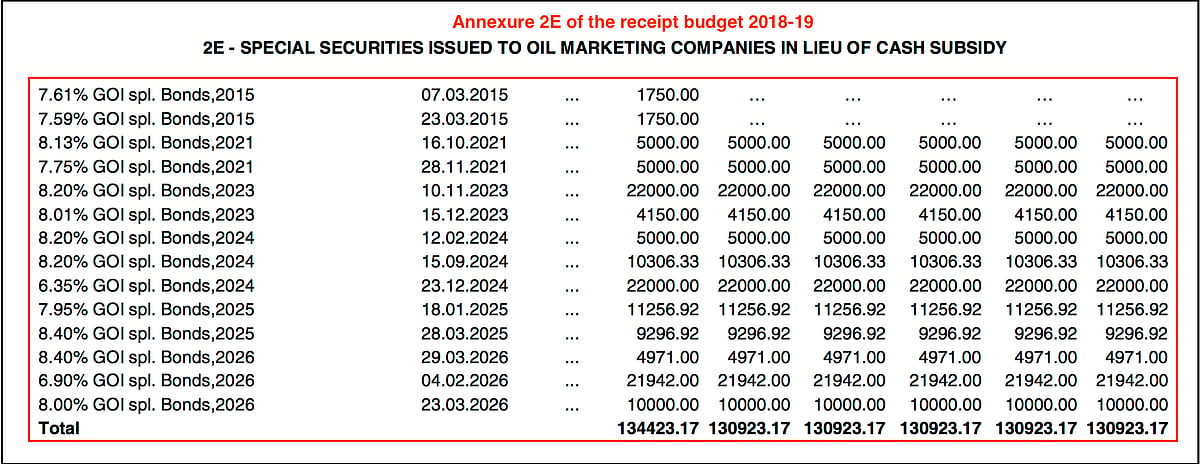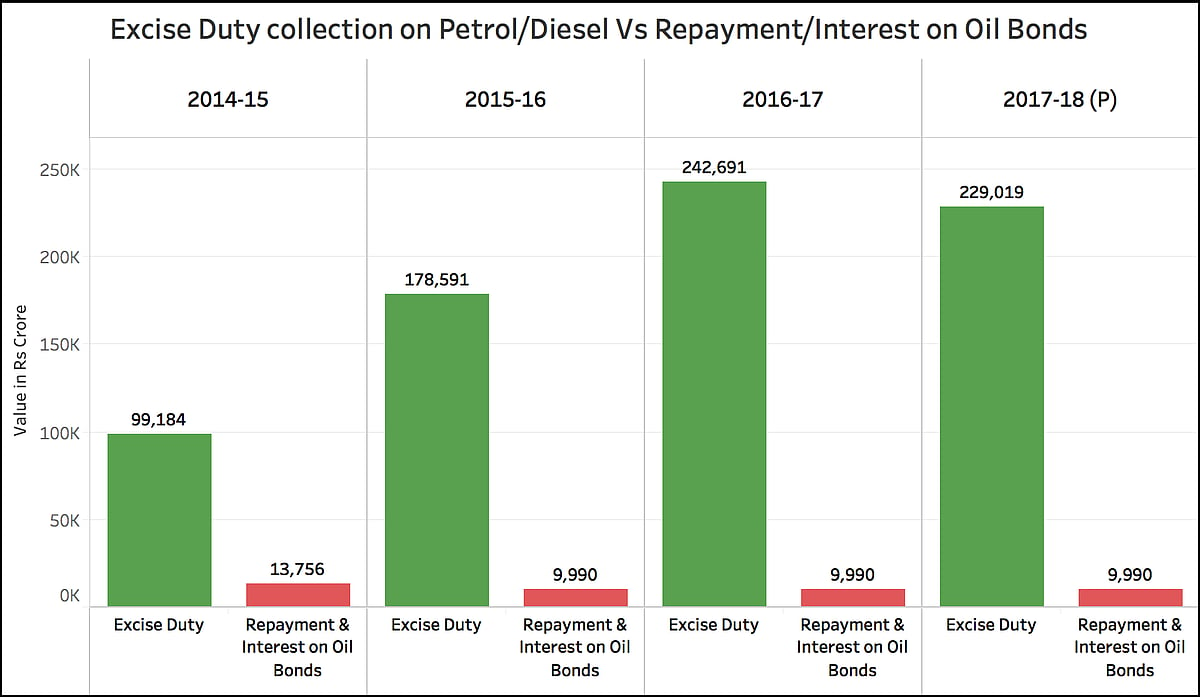Fact check: How much did the Modi government pay for the UPA era oil bonds?
BJP leaders said the Modi government repaid ₹1.5 lakh crore worth of oil bonds which were issued during the previous UPA government.
Many BJP leaders including the petroleum minister were quoted as saying that the current government repaid more than ₹1.5 lakh crore worth oil bonds which were issued during the previous UPA government. The BJP’s official Twitter handle put out an infographic which claimed that the current government repaid pending oil bonds worth ₹1.3 lakh crore with an interest of ₹40,000 crore.
So how much did the current government pay for the oil bonds issued during the UPA? Is this is the only government that has paid interest on oil bonds? Were oil bonds issued only during the UPA? Here is a fact check.
What are oil bonds and who all issued these bonds?
Oil bonds were issued by the governments during the days when the prices of petrol/diesel were regulated. Instead of paying the Oil Marketing Companies (OMCs) for the subsidies extended on petrol/diesel and other oil products, the governments used to issue oil bonds as compensation to these companies which are like government securities. These securities are usually long-dated securities of 10-20 years. For instance, look at this notification of the oil bonds issued during the UPA.

Oil bonds were issued by all the previous governments till 2010 when the petrol price was deregulated. Even the previous NDA government under Vajpayee issued oil bonds. In his budget speech of the 2002-03 budget, then Finance Minister, Yashwant Sinha, mentioned that the government will issue oil bonds.
What is the worth of oil bonds pending?
The budget documents available in the public domain reveal the information of pending oil bonds and the amount of interest to be paid on these oil bonds. As per annexure 6E of the receipt budget 2014-15, titled ‘Special Securities Issued To Oil Marketing Companies In Lieu Of Cash Subsidy’, the total value of pending oil bonds by the end of 2013-14 was ₹1,34,423 crore. This is when the NDA government took over. As per this document, the pending liabilities related to oil bonds were ₹1,34,423 crore. The only set of bonds due for maturity during the 2014-19 period (the Modi government’s term) were the two sets of bonds which matured in 2015, totalling ₹3,500 crore. (Note: This was first highlighted by Boom Live.)

We cross-checked this with annexure 2E of the receipt budget of 2018-19 which showed the same set of pending liabilities. In other words, the pending liabilities when the Modi government took over were ₹1,34,423 crore and by 2018-19, the liabilities stand at ₹1,30,923 crore. In effect, the Modi government repaid only ₹3,500 crore worth of oil bonds which matured in the year 2015.

Update: The Petroleum Planning & Analysis Cell (PPAC) under the Ministry of Petroleum has also confirmed that the current government has only repaid oil bonds worth ₹3,500 crore.
Claim: Modi government paid off the pending bills of the oil bonds.
Fact: The Modi government paid only ₹3,500 crore worth oil bonds which matured in 2015 and oil bonds worth ₹1.3 lakh crore are still pending. Hence this claim is FALSE.
What about interest on oil bonds?
The interest payments of the government of India are captured in a document titled “Interest Payments” in the demand for grants of the Ministry of Finance under the expenditure budget. All the interest payments made by the government are given in this document including the interest on special bonds to oil companies. The data of the last 20 years suggests that various government (both UPA and NDA) have been paying interest on oil bonds. The interest liability increased substantially during UPA-1 because of the issue of multiple oil bonds. UPA-2 paid a total of ₹53,163 crore in interest for oil bonds in the five-year period between 2009-10 and 2013-14.
On the other hand, the current NDA government paid a total of ₹40,225 crore in the four-year period between 2014-15 and 2017-18. They also budgeted an interest payment of ₹9,989.96 crore in 2018-19.

The interest payments for the last four years clearly indicate that there was no change in the outstanding amount, hence no repayments in the last four years except in 2015. Though it is true that the Modi government paid an interest of over ₹40,000 crore in the last four years, UPA-2 had also paid similar if not a greater amount of interest during their term.
Claim: Modi government paid interest of ₹40,000 crore on oil bonds.
Fact: This claim is TRUE. But it has to be noted that even the previous UPA government paid such interest and in fact a greater amount than the current government.
How do these payments match up with the increased excise duty on petrol and diesel?
The total amount of excise duty collected by the government of India between 2014-15 and 2017-18 is ₹7,49,485 crore. During the same period, the government made a total payment of ₹43,725 crore towards repayment and interest on oil bonds. The payment on oil bonds is less than six per cent of the total excise duty collected on petrol/diesel. To say that this was the reason for an increase in taxes does not seem justified.

Note: The research has been done by Factly and is part of a larger series on the 4 years of the Modi government.
